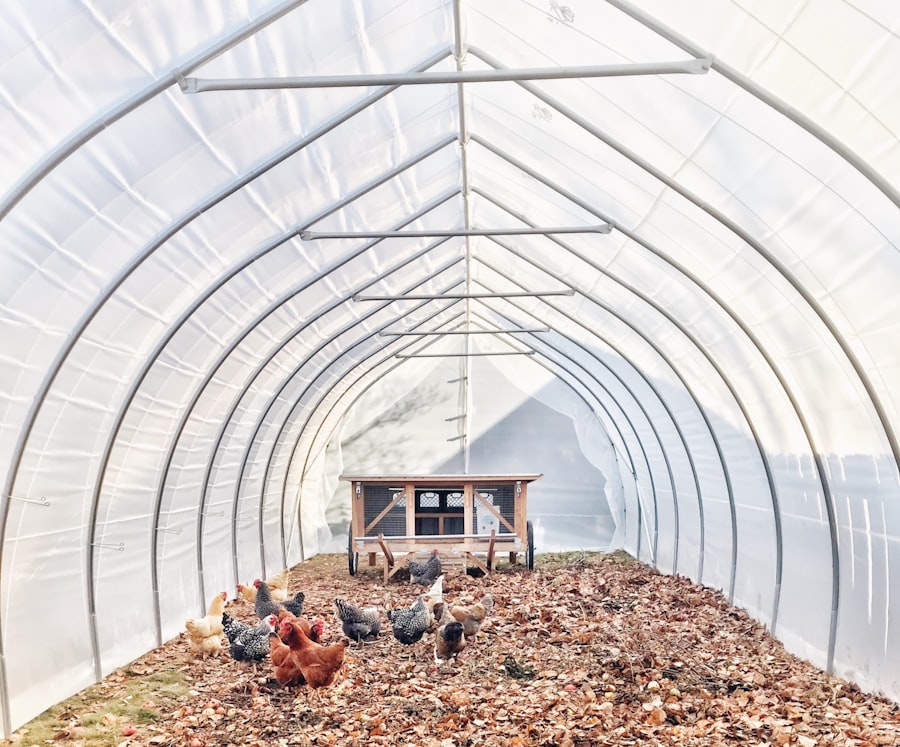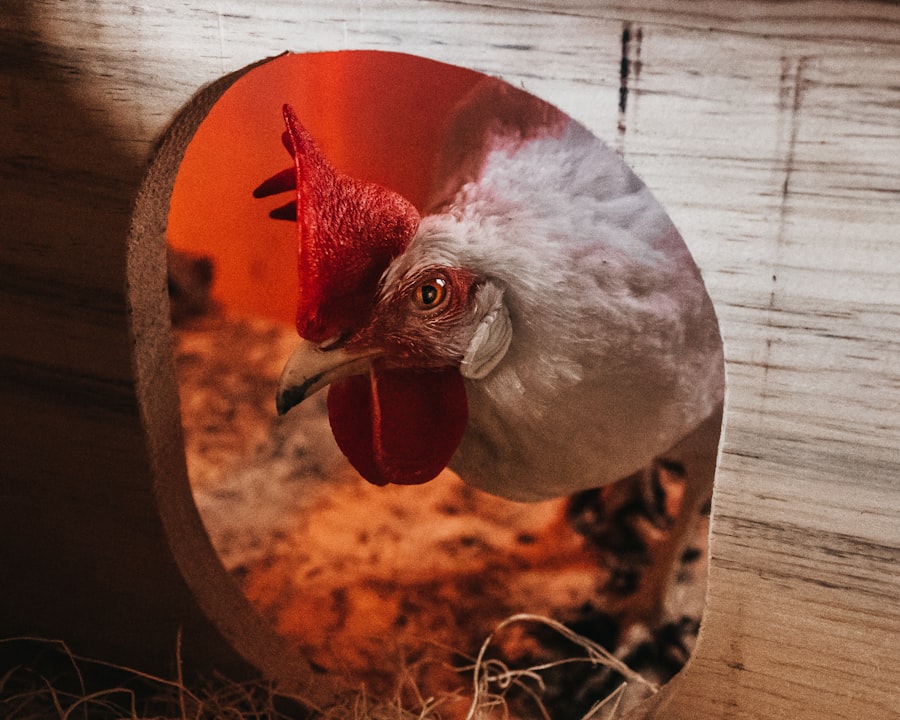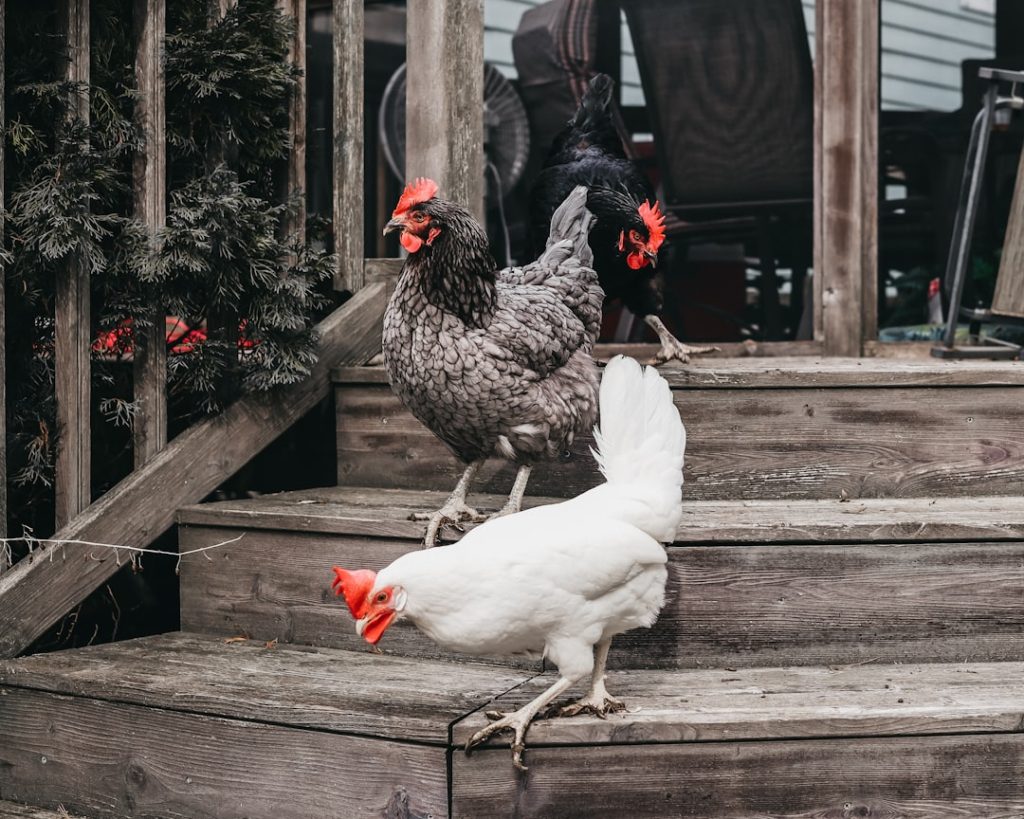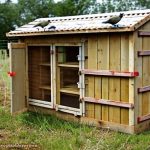When initiating a backyard chicken operation, several initial costs must be considered. The primary expense is the purchase of chickens, with prices varying based on breed and age. A coop or housing structure is essential, ranging from simple DIY constructions to more elaborate pre-fabricated options.
Additional necessary items include feeders, waterers, bedding, and potential fencing or predator protection measures. Thorough research and budgeting are crucial to ensure the acquisition of quality chickens and equipment that meet specific requirements. For those planning to raise chicks from hatchlings, a brooder setup is necessary.
This heated enclosure provides a safe environment for chick development before their transition to the main coop. Brooder-related expenses may include a heat lamp, bedding, and a suitable enclosure. Basic tools and supplies for coop maintenance and chicken care, such as shovels, rakes, and cleaning materials, should also be factored into the initial costs.
Comprehensive consideration of these expenses is essential when planning a backyard chicken operation to ensure adequate preparation for the financial investment involved.
Table of Contents
- 1 Housing and Equipment
- 2 Feed and Supplements
- 3 Veterinary Care
- 4 Regulatory Fees and Licenses
- 5 Egg Production and Cost Savings
- 6 Long-term Considerations
- 7 FAQs
- 7.1 What are the initial costs of keeping chickens in Australia?
- 7.2 What are the ongoing costs of keeping chickens in Australia?
- 7.3 Are there any legal requirements or regulations for keeping chickens in Australia?
- 7.4 What are some potential cost-saving measures for keeping chickens in Australia?
- 7.5 What are the benefits of keeping chickens in Australia?
Key Takeaways
- Initial costs for starting a small-scale egg production operation include purchasing chicks, building or purchasing a coop, and acquiring basic equipment such as feeders and waterers.
- Housing and equipment should be designed to provide a safe and comfortable environment for the hens, including proper ventilation, nesting boxes, and roosting space.
- Feed and supplements make up a significant portion of the ongoing expenses for egg production, and it’s important to provide a balanced diet to ensure the health and productivity of the hens.
- Veterinary care is essential for maintaining the health of the flock, including regular check-ups, vaccinations, and treatment for any illnesses or injuries.
- Regulatory fees and licenses may be required depending on the location and scale of the egg production operation, so it’s important to research and budget for these expenses.
- Egg production can result in cost savings for households by providing a fresh and reliable source of eggs, as well as potential income from selling excess eggs.
- Long-term considerations for egg production include planning for the aging of the hens, managing waste and environmental impact, and potential expansion or diversification of the operation.
Housing and Equipment
The Coop: A Safe Haven
The coop should provide adequate space for the number of chickens you plan to keep, as well as protection from predators and the elements. It should also be well-ventilated and provide nesting boxes for the hens to lay their eggs.
Equipment Essentials
In terms of equipment, you will need feeders and waterers that are suitable for the number of chickens in your flock. These should be kept clean and filled with fresh food and water regularly. Bedding is also essential for the coop, providing a comfortable and absorbent surface for the chickens to rest on.
Predator Protection and Maintenance
Depending on your location and the presence of predators, you may also need to invest in fencing or other forms of predator protection to keep your chickens safe. Additionally, the coop should be easy to clean and maintain to ensure a healthy living environment for the chickens.
Investing in Quality
It’s important to invest in high-quality housing and equipment for your backyard chicken operation to ensure the health and safety of your birds. While there may be upfront costs associated with purchasing these items, they are essential for creating a suitable living environment for your chickens.
Feed and Supplements

Feed is one of the ongoing costs of raising backyard chickens. The type of feed you choose will depend on the age and breed of your chickens, as well as their purpose (e.g., egg-laying or meat production). You may also choose to supplement their diet with kitchen scraps or treats, but it’s important to ensure they are receiving a balanced diet that meets their nutritional needs.
In addition to feed, you may also choose to provide your chickens with supplements such as calcium or grit. Calcium is essential for egg production, so providing oyster shells or another source of calcium can be beneficial for laying hens. Grit helps chickens digest their food by grinding it up in their gizzards, so it’s important to provide access to grit if they are not able to find it naturally.
It’s important to budget for ongoing feed and supplement costs when planning for a backyard chicken operation. By providing your chickens with a balanced diet and necessary supplements, you can help ensure their health and productivity.
Veterinary Care
While backyard chickens generally require less veterinary care than other types of livestock, it’s still important to budget for potential medical expenses. Chickens can be susceptible to various health issues such as parasites, respiratory infections, and injuries. It’s important to have a plan in place for addressing these issues should they arise.
In addition to potential medical expenses, it’s also important to consider the cost of preventative care such as vaccinations and parasite control. Some chicken owners choose to administer these treatments themselves, while others may prefer to seek professional veterinary care. It’s important to be prepared for potential veterinary expenses when starting a backyard chicken operation.
By budgeting for these costs and having a plan in place for addressing health issues, you can help ensure the well-being of your flock.
Regulatory Fees and Licenses
Depending on your location, there may be regulatory fees and licenses associated with keeping backyard chickens. Some areas have specific regulations regarding the number of chickens allowed, coop requirements, and zoning restrictions. It’s important to research the local regulations in your area and budget for any associated fees or permits.
In addition to regulatory fees, you may also need to invest in insurance or liability coverage for your backyard chicken operation. This can help protect you financially in the event of any unforeseen accidents or issues related to your chickens. It’s important to be aware of any regulatory fees and licenses associated with keeping backyard chickens in your area.
By understanding and budgeting for these costs, you can ensure that you are in compliance with local regulations and avoid any potential legal issues.
Egg Production and Cost Savings

Cost Savings on Eggs
By producing your own eggs at home, you can save money on grocery store purchases while also enjoying the benefits of fresh, high-quality eggs. Depending on the number of hens in your flock and their egg-laying capabilities, you may be able to produce enough eggs to meet your household’s needs.
The Value of Producing Your Own Food
In addition to cost savings on eggs, some chicken owners also find value in the process of producing their own food at home. Raising chickens can be a rewarding experience that provides a sense of self-sufficiency and connection to the food production process.
Fresh, High-Quality Eggs at Home
By producing your own eggs at home, you can enjoy fresh, high-quality eggs while potentially saving money on grocery store purchases.
Long-term Considerations
When starting a backyard chicken operation, it’s important to consider the long-term implications and responsibilities associated with keeping chickens. Chickens can live for several years, so it’s important to be prepared for the ongoing care and maintenance they will require. Additionally, it’s important to consider the potential changes in your lifestyle that may come with keeping chickens.
This can include daily chores such as feeding and watering the chickens, as well as regular cleaning and maintenance of the coop. It’s also important to consider the potential challenges that may arise over time, such as health issues or changes in your living situation. By being prepared for these long-term considerations, you can ensure that you are fully equipped to care for your flock over time.
In conclusion, starting a backyard chicken operation involves several initial costs and ongoing expenses that should be carefully considered and budgeted for. From housing and equipment to feed and veterinary care, there are many factors to take into account when planning for a backyard chicken operation. By understanding these costs and considering the long-term implications of keeping chickens, you can ensure that you are fully prepared for the financial investment and responsibilities associated with raising backyard chickens.
If you’re considering keeping chickens in Australia, you may also want to think about what kind of coop is best for them. According to Poultry Wizard, the type of coop you choose can have a big impact on the health and happiness of your chickens. To learn more about the best coop options for your feathered friends, check out their article on what kind of coop is best for chickens.
FAQs
What are the initial costs of keeping chickens in Australia?
The initial costs of keeping chickens in Australia include purchasing a chicken coop, feeders, waterers, and the chickens themselves. Additionally, there may be costs associated with setting up a secure outdoor area for the chickens to roam.
What are the ongoing costs of keeping chickens in Australia?
The ongoing costs of keeping chickens in Australia include purchasing chicken feed, bedding material, and any necessary medical care for the chickens. There may also be costs associated with replacing or repairing equipment and maintaining the chicken coop and outdoor area.
Are there any legal requirements or regulations for keeping chickens in Australia?
Yes, there are legal requirements and regulations for keeping chickens in Australia. These may include restrictions on the number of chickens allowed, the location of the coop, and the disposal of chicken waste. It is important to check with local councils and authorities to ensure compliance with these regulations.
What are some potential cost-saving measures for keeping chickens in Australia?
Some potential cost-saving measures for keeping chickens in Australia include sourcing feed and bedding materials in bulk, utilizing kitchen scraps and garden waste as supplemental feed, and implementing sustainable practices such as composting chicken waste for use in the garden.
What are the benefits of keeping chickens in Australia?
Keeping chickens in Australia can provide a sustainable source of fresh eggs, natural pest control in the garden, and the opportunity to engage in a rewarding and educational hobby. Additionally, chickens can contribute to a more self-sufficient and environmentally friendly lifestyle.
Meet Walter, the feathered-friend fanatic of Florida! Nestled in the sunshine state, Walter struts through life with his feathered companions, clucking his way to happiness. With a coop that’s fancier than a five-star hotel, he’s the Don Juan of the chicken world. When he’s not teaching his hens to do the cha-cha, you’ll find him in a heated debate with his prized rooster, Sir Clucks-a-Lot. Walter’s poultry passion is no yolk; he’s the sunny-side-up guy you never knew you needed in your flock of friends!







